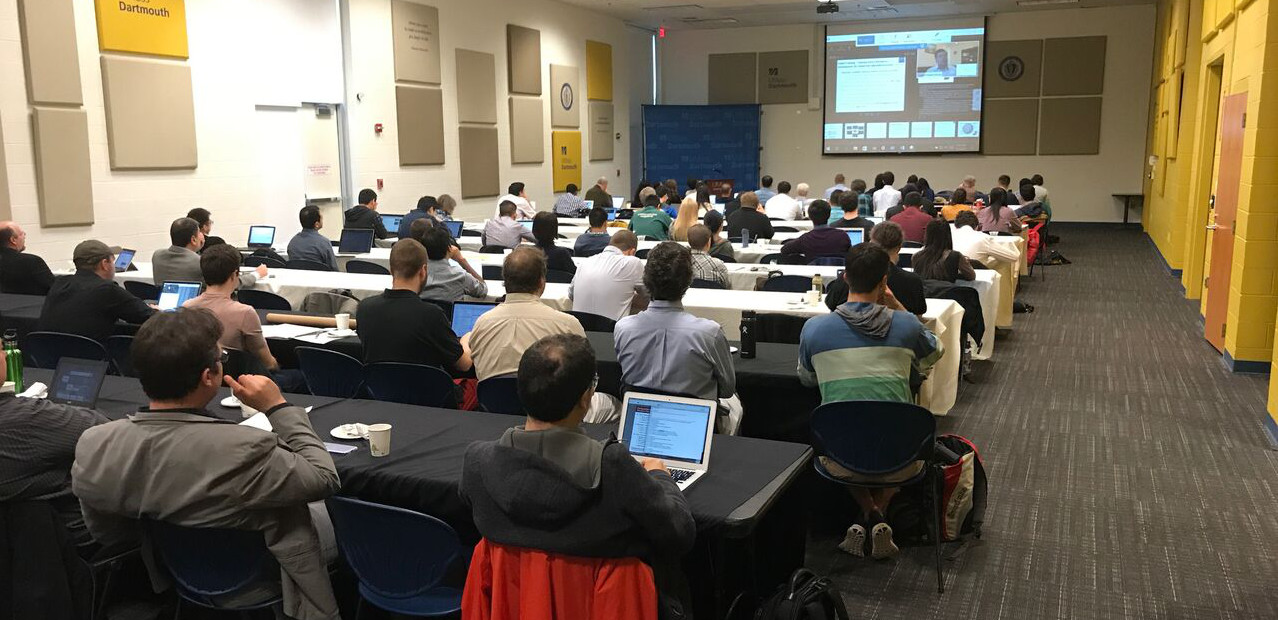
UMass Dartmouth's Center for Scientific Computing & Visualization Research (CSCVR) organized and hosted the third annual "HPC Day 2017" on May 25th. This annual event showcases on-going scientific research in Massachusetts that is enabled through high-performance computing (HPC). This year the participants came from institutions all over the state: Boston University, Harvard, MIT, Northeastern University, Tufts University, WPI, UMass Amherst, Boston, Dartmouth, Lowell, Medical and even industry.
Read this story at UMass Dartmouth’s Center for Scientific Computing & Visualization Research news
The event featured a total of 13 talks presenting the application of HPC in research areas ranging from biological systems to cosmology. The conference was highly attended with 139 attendees pre-registered, and with 20 registering on-site. A special poster session with awards for student projects was included as well. Over 20 posters were presented at the conference showcasing top notch student research from all over the state. Five awards were granted that were made possible through generous donations by Nvidia, Dell and MathWorks. The conference lunch was sponsored by Microway Inc., while the two coffee breaks were sponsored by Dell.
There were two keynote speakers this year. The first was Dr. Sushil Prasad from the National Science Foundation, who talked about his vision for an impactful curricular change to Computer Science programs in the country. His talk was titled "Developing IEEE TCPP Parallel and Distributed Computing Curriculum and NSF Advanced Cyberinfrastructure Learning and Workforce Development Programs." On the same theme, there was also an interactive Education Panel that included stakeholders from industry and academia to discuss issues associated with HPC education and training. The second keynote speaker was Dr. Luke Kelley from Harvard who gave an exciting and visually engaging talk titled “Predictions of future Gravitational Wave Observations using Simulations of the Universe”. This is a very special time for the gravitational physics research community following the recent first-ever discovery of gravitational waves by the LIGO detector.
The CSCVR also used this event to debut a small prototype GPGPU computing system, that is powered purely using solar panels. The unique feature of this system is its extremely high power efficiency -- an order-of-magnitude larger than traditional systems, made possible by leveraging highly-efficient consumer electronics (in particular, Nvidia Shield TV "set-top" units). The CSCVR has a history of developing innovative supercomputers from using gaming consoles to more recently, using video-gaming graphics cards and mobile-devices.
The CSCVR provides undergraduate and graduate students with high quality, discovery-based educational experiences that transcend the traditional boundaries of academic fields, and foster collaborative research in the computational sciences. The CSCVR's computational resources are being utilized to solve complex problems in the sciences ranging from the modeling of ocean waves to uncovering the mysteries of black hole physics.
HPC Day 2017 Conference webpage